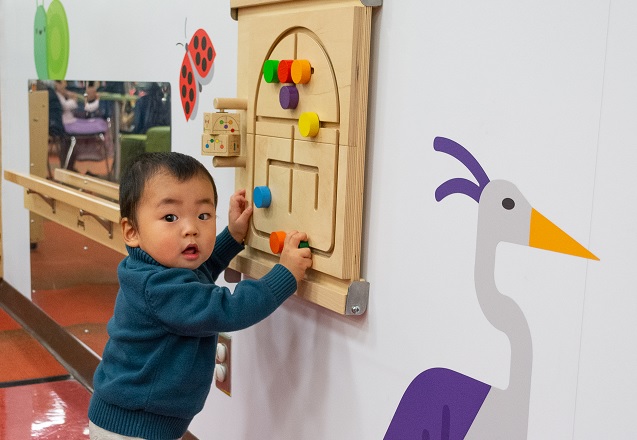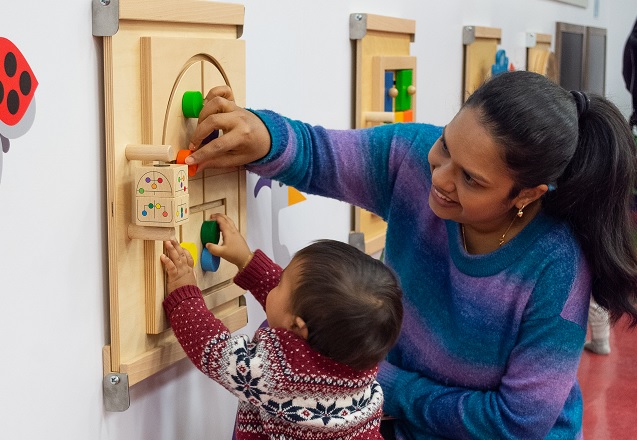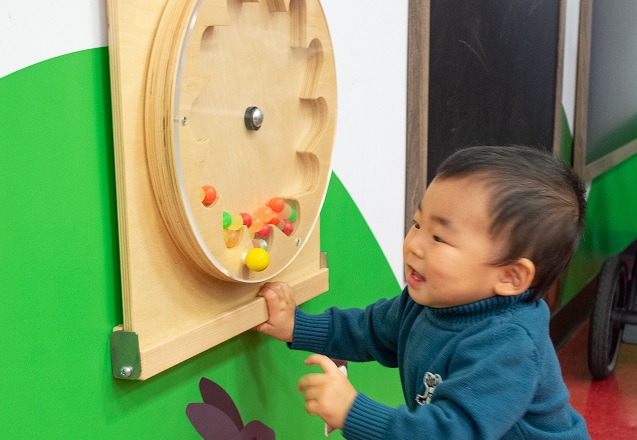The Importance of Play
Play is often seen as the opposite of work. However, play is much more than that. It is a way for children to learn about the world while exploring and testing their own limits. Play is crucial to cognitive development and social well-being because it provides time and space for children to explore and gain skills needed for adult life.
Even the United Nations lists play as one of the basic rights of every child, so why exactly is play important for children?



- It strengthens neural connections, the paths in the brain that we use for thinking.
- The prefrontal cortex of the brain (the area that influences the way a child learns, solves problems and gains knowledge about their environment) is given a workout!
- Play encourages children to explore the use of symbols, and representations (both visual and code-based) to communicate messages in context.
- Through play children practice new sounds, new vocabulary, and exercise their imagination through storytelling.
- Play encourages children’s creative problem-solving skills.
- Play encourages appreciation in artistic expression.
- Children develop problem solving skills and are better equipped to face fears and cope with struggles.
- Provides a safe opportunity for children to rehearse skills and future social roles.
- Physical play promotes gross motor skills, strength, endurance, and physical health.
- Regular, active play has positive and far-reaching health effects throughout a child’s life.
- Playing together gives you an opportunity to model empathy by asking questions, sharing feelings and showing respect for your child’s viewpoint.
- Children who play grow to have a better understanding of other people’s feelings and beliefs.
- Parents who play with their children form a stronger bond with them.
- Children learn the skills of negotiation, problem solving, sharing, and working within groups.
The Early Literacy Corner at Brighouse library provides a tactile, play-based learning area for families to connect and play together. The design includes developmentally appropriate activities designed to encourage collaborative play between caregivers and children.
All of our library locations offer Free, Drop in programs for families that encourage literacy and reading, including Storytime and Babytime. Visit the library’s online events calendar for more details. Sign your child up for a library card and visit the library to help make the library part of your routine.
Here are a few tips to help you encourage play at home:
- Be inspired with these books on play for babies and toddlers and preschoolers.
- Use your imagination to create your own story with these silent picture books.
- Combine storytime with movement with these fun books.
- Play a game of naming objects around the house as you see them. You can also do this while outside at the park or at a shopping centre.
- Give kids ample, unscheduled time to be creative, to reflect, and to decompress.
- Play an “I Spy” game and use words to describe such as soft, big, small, round.
- Encourage your children to engage in active play (running around or playing tag) instead of passive entertainment (video games or television).
- Tell each other knock-knock jokes.
- Supply children with toys such as blocks, old scarves and clothes for costumes, boxes, and stuffed animals to encourage imagination and creativity.
- Spend unscheduled, unstructured time together with your children.